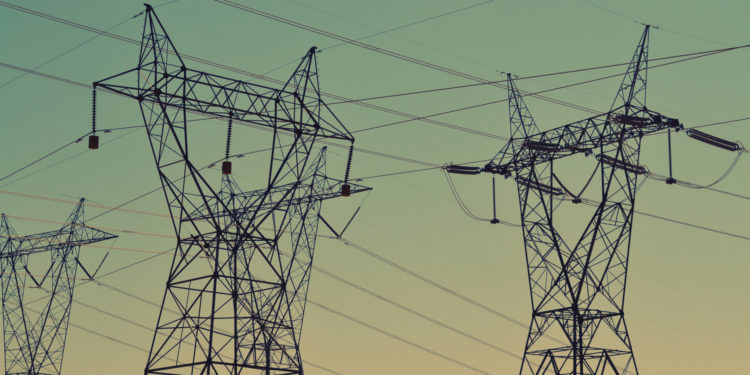The recent blackout across northern Nigeria, which impacted 17 states for nearly two weeks, has once again exposed the country’s chronic vulnerabilities in energy infrastructure.
Apart from Niger and Kwara, 17 states in the North were without electricity supply for almost two weeks.
The worst affected were Kaduna, Kano, Jigawa, Gombe,Katsina, Sokoto, Zamfara, Bauchi, Yobe, Borno, Adamawa, Taraba, Plateau, Nasarawa, Kogi and Benue.
The power outage—finally resolved last Wednesday—has left in its wake a trail of frustration, economic losses, and heightened security concerns. While electricity was restored, the incident signals a deeper issue that Nigeria can no longer afford to ignore.
The immediate cause, according to reports, was the vandalism of transmission towers operated by the Transmission Company of Nigeria.
The sabotage affected the Shiroro-Kaduna 330kV line, which powers key northern states, including Kano, Kaduna, Bauchi, and Gombe.
Businesses, particularly small and medium enterprises that depend on reliable power, have reported billions in losses. The toll on households was equally dire, with families losing food and perishable goods—a severe blow at a time when many already struggle under high inflation and recent subsidy cuts on fuel and foreign exchange.
In a region beset by security challenges, from insurgency to banditry, the extended power outage compounds an already volatile situation.
In our view, the fact that such a significant portion of the country could be left in darkness for so long is as troubling as it is unacceptable. The delayed restoration highlights systemic gaps in both our infrastructure and our capacity for rapid response.
We are tempted to ask how can a nation, with all its resources and potential, allow itself to be held hostage by a handful of criminals?
Following the blackout, the Governor of Gombe State, Muhammadu Yahaya, who also chairs the Northern States Governors’ Forum, convened a meeting with the 18 other governors from the region and traditional rulers.
The governors and monarchs called on the federal government to address the electricity crisis and invest in additional transmission lines and diversified energy supply.
On his part, President Bola Tinubu expressed his dismay over the reports of vandalism and the wilful destruction of public infrastructure, and during a meeting with the Minister of Power, Adebayo Adelabu, he directed that a long-term solution be sought.
However, while these sentiments are commendable, they must be matched by concrete actions. The sad reality is that power outages and national grid collapses have gradually become the norm in Nigeria.
The frequency of these blackouts—108 recorded collapses since the privatisation of the power sector—paints a grim picture of an industry that is not only failing to meet demand but is also unable to protect its assets.
As reports suggest, bandits may have vandalised the Shiroro transmission towers. If this is indeed the case, it raises alarming questions about the security of vital infrastructure in Nigeria.
The notion that our energy supply could be disrupted by non-state actors is unacceptable. The country cannot and should not surrender to criminality. To safeguard the power infrastructure, the government must combine ground troop presence with advanced surveillance technologies.
A secure energy supply is not merely a convenience; it is a fundamental right that underpins economic stability and social cohesion.
Moreover, the blackout incident brings to light the urgent need to decentralise Nigeria’s national grid.
In the considered opinion of this newspaper, the current model is outdated and ill-equipped to handle the diverse energy needs of the country’s various regions.
Each of Nigeria’s six geopolitical zones should have its own power grid, allowing for localised management and development of energy resources.
For the North, with its ample sunlight, solar energy presents a largely untapped opportunity. By investing in solar infrastructure, northern states can not only meet their energy needs but also create jobs and stimulate economic growth.
This approach would be particularly beneficial in light of the current economic challenges facing Nigerians. With the removal of fuel and forex subsidies, citizens and businesses are already hemorrhaging financially.
The two-week blackout exacerbated these challenges, with countless families losing perishable goods and struggling to keep their homes cool in the searing heat. The government’s inability to ensure a stable power supply during such a critical time is a glaring failure that demands accountability.
Needless to say, power generation should not be an afterthought; it must be a national priority. To achieve this, a comprehensive plan must be developed that focuses on sustainable energy solutions, efficient management of existing resources, and robust protection of infrastructure. Policymakers must summon the political will to turn these ideas into reality.
Furthermore, international partnerships and investment should be sought to bolster the country’s energy capabilities.
Countries that have successfully transitioned to renewable energy models offer valuable lessons that Nigeria can learn from.
Collaborating with global experts can provide the necessary technology and expertise to implement innovative solutions tailored to Nigeria’s unique challenges.



